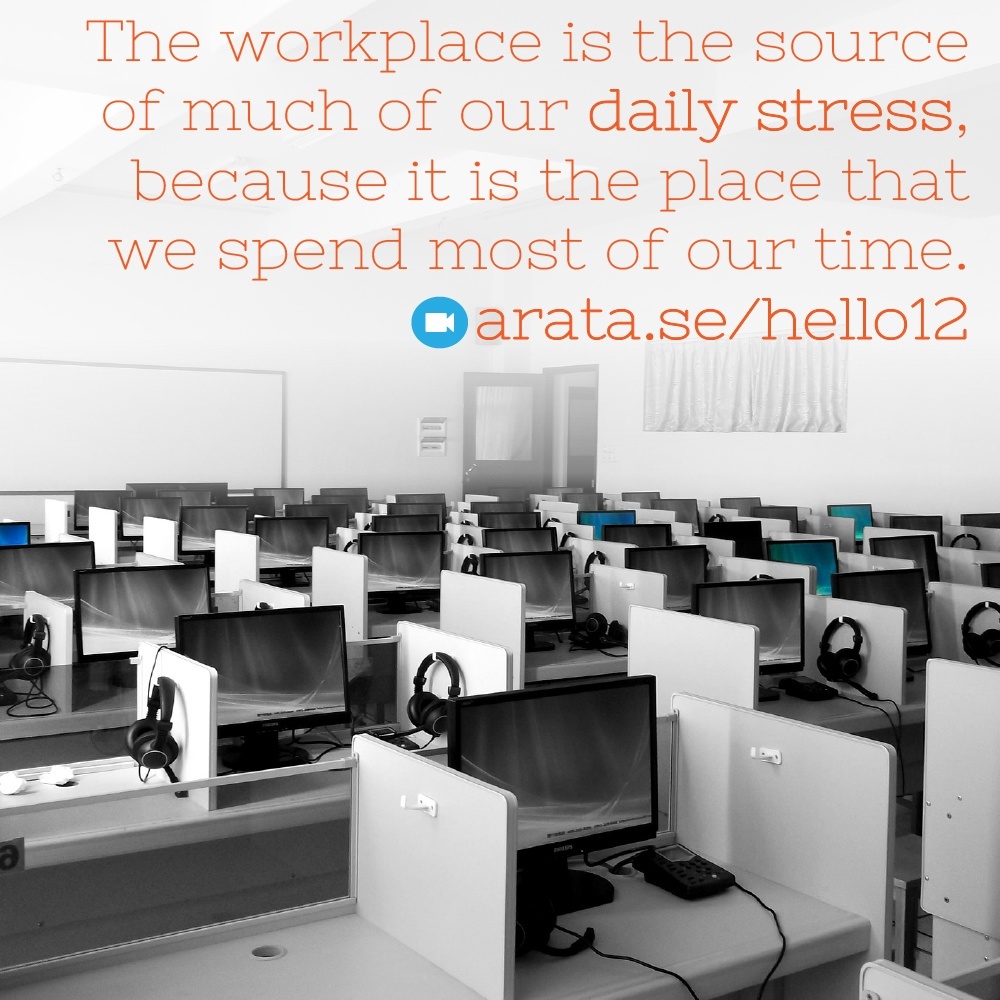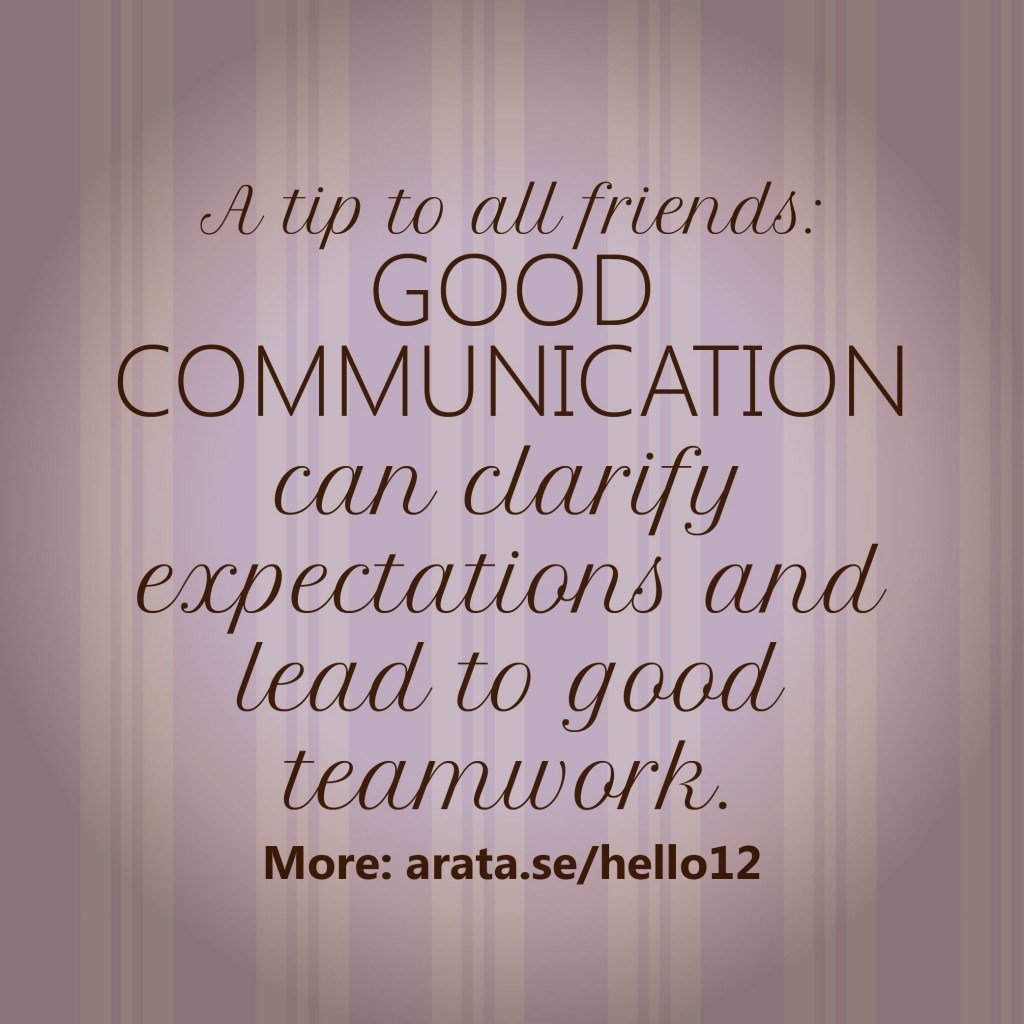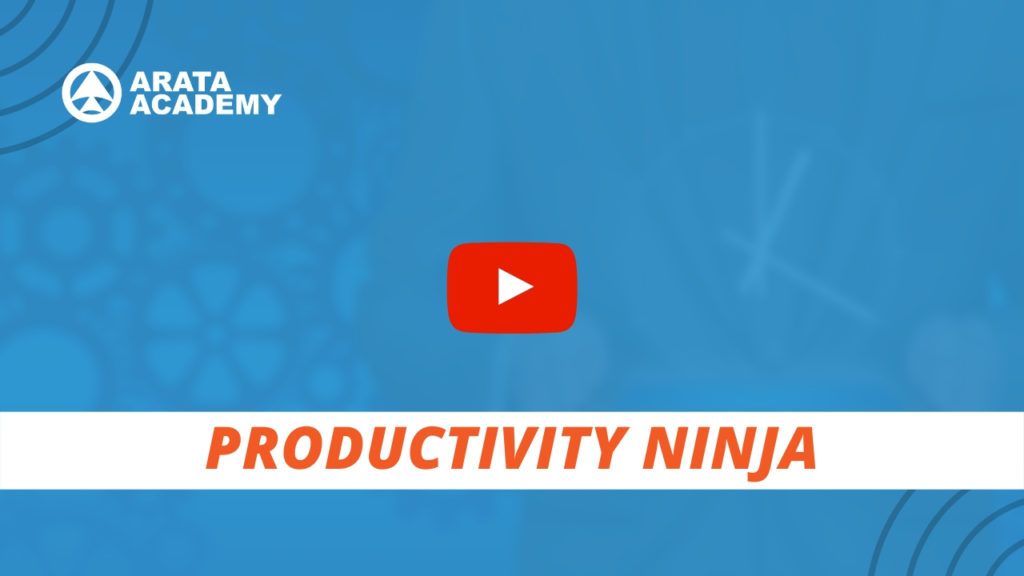Hello! Seiiti Arata. The workplace is the source of much of our daily stress, because it is the place that we spend most of our time. Often it is filled with hostile people and time limits that make everyone a little short-tempered.
In the previous video we saw three routines to redesign our lifestyle and reduce stress. Today we will be more specific about stress at work. Ready?
1. REFRAMING: Stop avoiding stress.
Stress is unavoidable; it is part of life. Instead of trying to escape it, we will face it from a different perspective. This is our reframing.
Stress is not a harmful force coming from outside. It is the pressure that we put on ourselves.
We all have a lot of stress that comes from thinking that we have to get something done by the end of the day. Otherwise, the whole world is going to end and we’ll be fired for being the worst employee ever.
In most cases, however, the real problem is lack of good communication to explain what we are doing, the efforts we have made and the next steps we’ll take. Good communication can clarify expectations and lead to good teamwork.

Another way to reframe is to simply remind yourself that you are good at your job, and you will get the task done as soon as possible. You are not procrastinating; you are doing your very best, and this is a very professional attitude. You should congratulate yourself, and if anyone is expecting it sooner than that, they are being unrealistic. Once again, what we need here is better communication to keep all expectations aligned.
If you do recognise that you may be procrastinating, though, and you would like to increase your productivity, check our online training courses.
2. Be organised.
For some people, organising their agenda daily into “must do” and “maybe think about doing” lists is crucial to keeping calm.
Being organised will keep you focused and reduce your stress. If you ever feel yourself beginning to panic about everything you have to do, you need only to look over the lists that you have made, and you will see the tasks at hand. Notice what your priorities are, and why. It gives you a sense of security and calm to have those lists there—use them!
3. Create the perfect environment for yourself so that you can focus.
For a lot of people, this means they should de-clutter their workspace. No excess sticky notes or piles of untidy loose-leaf. Prioritise what must be in your space so that it stays neat and well-maintained, especially your desk. How many decorative and other personal items should you keep? You are the only person who can decide what is the right balance, which provides you what you want.
4. Manage your digital environment.
The same applies to technological clutter (all the notifications and multitasking applications). Just think about them for a moment and consciously choose which can help you to have a better day.
While these mobile apps can be fun and relaxing for some people, they keep many of us frenzied and feeling as though we aren’t getting much done throughout the day. Try to limit your attention to one task at a time.
5. Find harmony with the people around you.
If you work better in the quiet, consider going in early so that you get the gears grinding before anyone else comes in. Some people like to feel part of the group, and they enjoy the moments when the whole team is together. So consider this, and choose what is best for you.
The same goes for planning your break times: consider working over your usual break times and then taking the breaks when it gets too noisy, and you need some space from it all. This means that you can set your own schedule—one that works for you personally—and still stay within the normal work hours. No matter whether you like to work in a loud or quiet environment, make sure you arrange the one that works for you personally.

And if you haven’t seen it yet, please take a look at the video Be in the Moment. It will help a lot!
So there you have it. Stress is a normal part of the work life, but the tips that we’ve discussed should help you manage it a little better, so you can stay calm at work and go home feeling accomplished.

